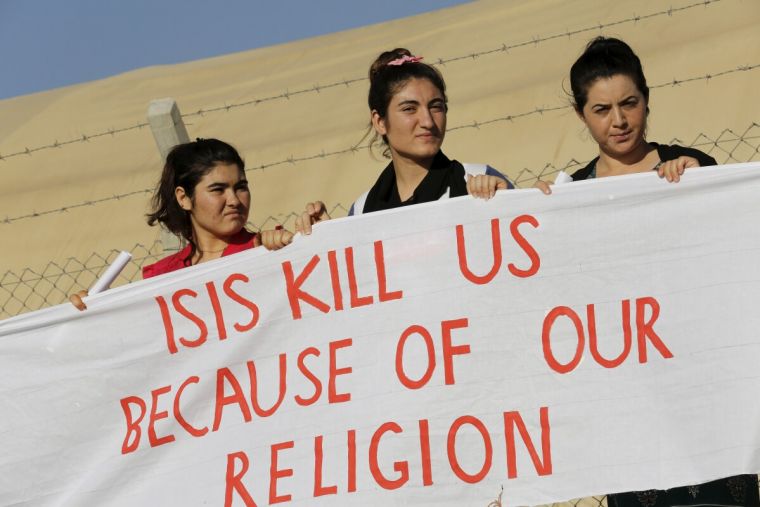ISIS sex-slave survivors reveal 'new and terrifying crisis' for women
New interviews with Yazidi and Sunni Muslim women who have escaped ISIS captivity reveal the extent of abuse women suffer living under the jihadist regime.

ISIS militants forced Yazidi (also spelled Yezidi) women to convert to Islam, bought and sold them in slave markets, and kept them in sexual slavery, according to accounts of women from the minority ethnic group who spent more than a year is ISIS-captivity.
In January and February 2016, Human Rights Watch (HRW) interviewed 21 Sunni Muslim Arab women from the Hawija area of Iraq and 15 Yazidi women and girls who had all fled ISIS-controlled areas.
"The longer they are held by ISIS, the more horrific life becomes for Yezidi women, bought and sold, brutally raped, their children torn from them," said Skye Wheeler, women's rights emergencies researcher at HRW.
Yazidism is an offshoot of Zoroastrianism, which blends ancient religious traditions with both Christianity and Islam. ISIS believes them to be "devil-worshippers" and has systematically persecuted the group, capturing an estimated 5,000 Yazidi men and women in the summer of 2014. Around 2,000 have since been smuggled out or managed to escape, and harrowing accounts of their treatment at the hands of militants have emerged.
Women reported that their children were physically abused by ISIS members and taken away from them. The women were forced to pray Islamic prayers and take Islamic names.
Only one of the Yazidi women interviewed by HRW reported having sustained psychosocial support or mental health care having escaped ISIS. These services are inaccessible to Yazidi families, due to both price, distance and a stigma surrounding rape and mental health.
"ISIS attacks on women and girls, especially Yezidis, have created a new and terrifying crisis for women and girls in the region," Wheeler said.
"One way Iraq's government can help these women is to change its laws and policies to better protect all women who have been subjected to rape."
The Sunni women described experiencing extreme restrictions on their clothing and freedom of movement, being forced to wear a niqab and be accompanied by a male relative whenever they left the house. These rules were enforced by beatings and fines, and left women isolated and practically house bound.
"ISIS's restrictions on Sunni women cut them off from normal life and services almost entirely," said Wheeler.
The women's access to healthcare had been restricted by ISIS' policies, which included rules limiting male doctors from touching, seeing or being alone with female patients. Girls had also been prevented from going to school in more rural areas.
The women reported that ISIS fighters and female ISIS "morality police" would hit, bite or poke women with metal prongs to keep them in line.
"Some women said they felt deeply humiliated by their treatment by ISIS, and two said they felt so depressed they had wanted to kill themselves," according to HRW.











